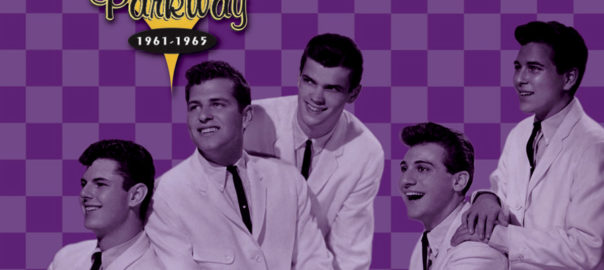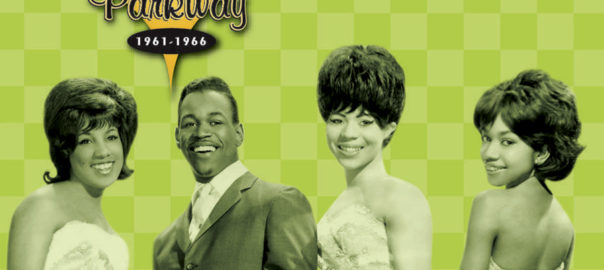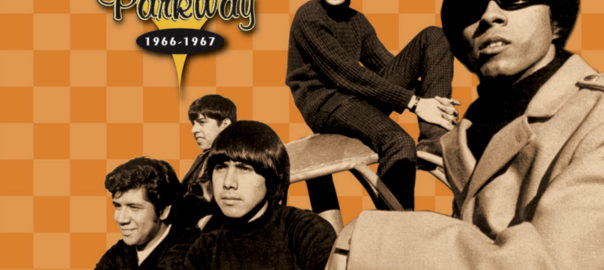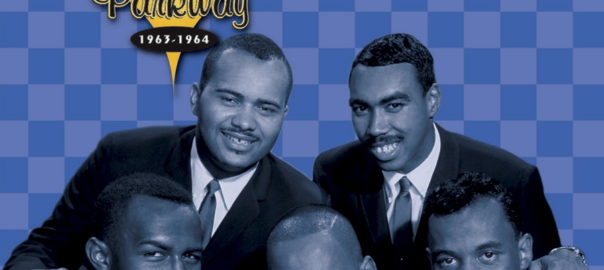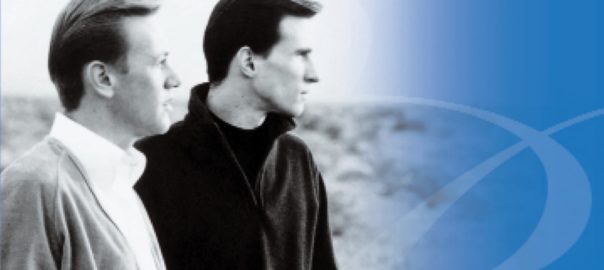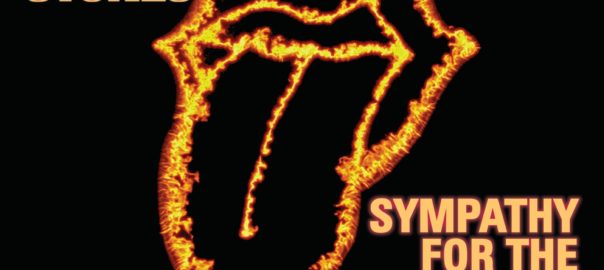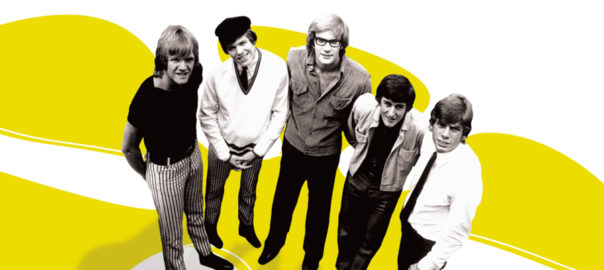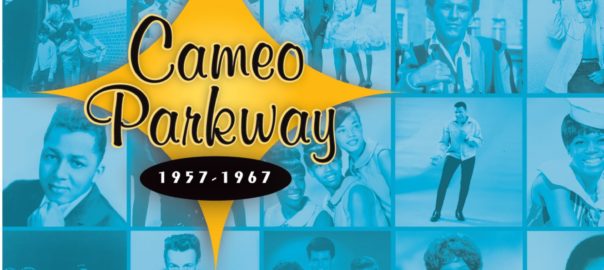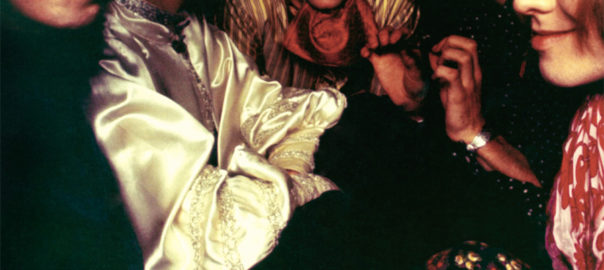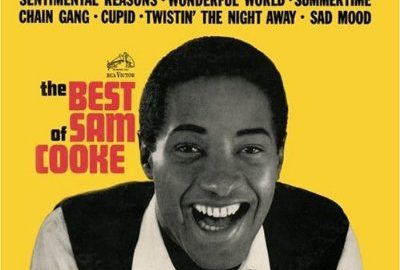Cameo Parkway was the one major record label of the rock & roll era to not see its material released on CD. The reason behind this is unclear. Allen Klein, best known as the manager of the Beatles and the Rolling Stones in the late ’60s, has owned the label since 1968, turning it into ABKCO the following year. All throughout the big CD reissue boom of the late ’80s and early ’90s, Cameo Parkway sat in the vaults while other reissues flooded the marketplace. This meant that big, big hits by Chubby Checker, Bobby Rydell, the Orlons, Dee Dee Sharp, and the Dovells all remained unreleased, along with early recordings from Patti LaBelle and a bunch of Michigan garage rock, including Bob Seger’s first singles and anything by the Rationals and the original recordings of ? & the Mysterians, including their classic “96 Tears.” Years passed and Cameo Parkway stayed far away from CD, although collectors clamored for these sides, never forgetting that the label had never made it to digital disc. Just when it seemed like Cameo Parkway would never make it to CD, ABKCO suddenly and surprisingly released the four-disc, 115-song box set Cameo Parkway 1957-1967 in May of 2005. This was a full 15 years after the peak of CD reissues and a full 40 to 45 years since the label’s heyday — a long, long wait to have this music reach CD. While there’s an unquestionable sense of relief to finally have a Cameo Parkway set — better late than never and all — ABKCO’s box does seem as if it’s arriving too late, as if it would have been better off if it were released during the days that Specialty, Atlantic, Vee-Jay, Phil Spector, and the Brill Building all received comprehensive box sets in the late ’80s and early ’90s. Those labels and movements were captured in lavishly packaged sets — either record-sized 12×12 boxes or book-sized sets, both with CDs housed in separate jewel boxes and large books, filled with photos, discographical details, and extensive liner notes. As appropriate for a box set released in the waning days of the CD era, Cameo Parkway feels like a downsized set: four discs in cardboard sleeves crammed into a small CD-sized box. The cramped 43-page booklet has a good label history from Jeff Tamarkin as well as pretty good notes concerning the release and chart details for each single, but there’s a lack of photos and the musician credits are all presented in alphabetical order over the course of two pages, with no indication of who played on what. Since ABKCO has done good work before, particularly on their Spector box, it’s possible that the market constraints of 2005 have led to this underwhelming packaging — after all, big box sets just aren’t made that often anymore, leaving lavish box sets as the province of specialty online outlets like Hip-O Select.
So, looking at Cameo Parkway, it’s hard not to wish that it was released in 1990, when it would have gotten better packaging, and listening to the set provokes a similar desire: this is music that should have been reissued years ago. If it had been released during the boom years of CD reissues, it would not have arrived with the same set of expectations as it does in 2005. Because of the long delay, a sense of anticipation arrives with the set. There’s an assumption that in addition to the big hits and classics that have never have seen release on CD, Cameo Parkway will deliver a cornucopia of lost treasures, revealing the label as having a legacy as vast, influential, and formidable as Specialty, Atlantic, and Vee-Jay. One listen to this four-disc set proves that not to be the case. Cameo Parkway was, first and foremost, a label of its time. It could even be said that it defined its time, namely the years after Elvis joined the Army and the years before the British Invasion. This was the time that rock & roll turned toward pop music and dance crazes, and Cameo Parkway provided the soundtrack, both out of design and good fortune.
The Philadelphia-based label shared a hometown with Dick Clark’s American Bandstand, and when the television show went national, the label always had acts ready to appear on a weekly basis. Soon, Cameo Parkway had two giant stars in Chubby Checker and Bobby Rydell. Chubby, of course, rode “The Twist” to number one not once but twice, helping to establish the label as a success. For a few years, Checker and Rydell had many hits, as did pop-soul singer Dee Dee Sharp and the vocal groups the Orlons and the Dovells. In addition to these hitmakers, the label churned out anything they thought would hit the charts — singles that sounded like other current trends (particularly Motown), songs by Hollywood stars (most notably Clint Eastwood’s “Rowdy”), wannabe dance crazes, instrumentals, answer songs, and novelty records by the dozen. This fueled the label during their heyday, but they were knocked off track by the British Invasion. They tried to recover by doing the only thing they knew how: throwing everything at the wall and seeing what stuck. This included licensing the Kinks and releasing banished Beatle Pete Best’s “Boys” (where he aped Ringo Starr’s vocals), trying to compete with Motown on the pop-soul angle, and, of course, more novelty records, such as a Bobby Kennedy sound-alike reciting “Wild Thing.” As the ’60s passed the halfway mark, Cameo Parkway founder Bernie Lowe left, and the label carried on for a few years, recording such local soul groups as the Five Stairsteps and the Delfonics and picking up a bunch of garage rock out of Michigan, before folding at the end of the decade.
Cameo Parkway traces this entire history quite effectively, which might make it interesting as both nostalgia and a historical document, but that doesn’t necessarily mean that it’s filled with great music. Surely, there is a bunch of great music here — of the earliest sides, the Dovells (“Bristol Stomp,” “You Can’t Sit Down”), the Orlons (“Don’t Hang Up,” “South Street”), and Dee Dee Sharp (“Mashed Potato Time”) hold up very well and the last disc, which is basically divided between early Philly soul and rampaging Detroit rock, is by and large excellent (so good, it does raise the question of why the Rationals were given only one song and why Seger’s terrific “Persecution Smith” and “Lookin’ Back” were left behind in favor of the Last Heard novelty “Sock It to Me Santa”) — but they’re surrounded by singles that capture their time without transcending it. Some of this stuff is quite fun, but early into the first disc, the teenybopper pop, cash-in instrumentals, and parade of novelties starts to wear thin — and that’s even before Chubby Checker comes along with his seemingly endless string of “Twist” knockoffs, none of which have improved with age.
Checker’s twists were hits, as were Bobby Rydell’s teenbeat tunes, but unlike the hit singles that came out on Sun, Atlantic, and Motown in the late ’50s and early ’60s, they are not timeless music. That’s unfortunately true of most of the music on Cameo Parkway: it’s music that is first and foremost music of its time. There are exceptions to the rule — some of the novelties are still fun, there are some good forgotten gems like the Rays’ jiving doo wop tune “Daddy Cool,” and the Michigan rock is fantastic, as are cuts by the Delfonics, the Five Stairsteps, and the aforementioned Dovells and Orlons sides — but for the most part, this set is of interest to listeners who either grew up with the music or to the most serious pop music archivist. For many listeners who waited patiently for these songs to come out on CD, it very well may be enough just to have this set out and on the market, but there will likely be just as many listeners who, given the long wait, expected something more musically substantial than what Cameo Parkway ultimately had to offer.
Album Review by Stephen Thomas Erlewine, AllMusic.com
